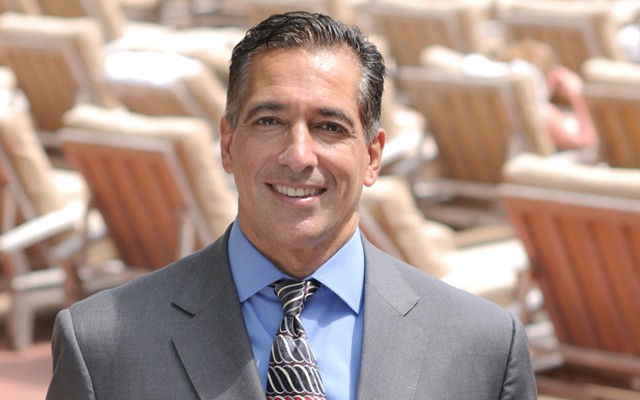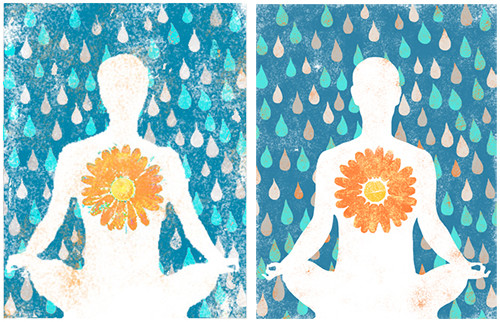Not long ago, I happened to catch part of a History Channel special on World War II. Watching it, I was struck by how the crazy, fear-based destructiveness of a handful of power-hungry people can create a legacy of pain for millions.
When I turned the TV off, that thought stuck with me, and I began perceiving how this dynamic plays out in so many areas of our lives.
The more fearful, less secure, and less satisfied we feel in our own bodies and lives, the more vulnerable we are to being manipu-lated by outside forces — from marketing and media messaging to group pressure and political rantings.
The more we strive for the upper hand in controlling, isolating, and distancing ourselves from the things that challenge us or make us uncomfortable, the more rigid we become in narrowly defining the conditions of our own happiness.
Natural systems are diverse, porous, dynamic, and symbiotic. And yet, we humans are often inclined to build big walls — figurative and literal structures — in an attempt to protect whatever static reality we’ve come to believe we “must” maintain in order to be OK in our lives.
In some cases, this has us clinging to ideas, habits, possessions, and relationships that no longer serve us. In other cases, it has us suppressing the symptoms of our disease (or disease), rather than addressing the root causes. In still other cases, it has us resisting those changes that inevitably occur in our bodies, minds, and spirits as we grow older (and, one hopes, wiser) with time and experience.
Too often, we’re inclined to create conflict and pain for ourselves and others rather than expand our viewpoints, and notice that there are potential gifts and opportunities on the other side of the “losses” we’re so afraid of enduring.
I can’t count the number of apparent defeats or disappointments I’ve experienced that eventually turned out to be very much to my advantage. And I cringe a little looking back at how many times I’ve “gone to war” to get my way without fully understanding all of the dynamics at play, the true costs, and the far better win-win resolutions that might have been available.
I’m not suggesting that we should pursue all our life goals with a passive, “go with the flow” attitude. I’m not suggesting that we shouldn’t be committed to enthusiastically creating and sustaining circumstances that support our own health and happiness.
But I will suggest that we often don’t realize the full range of happiness-creating circumstances available to us, or how many of the factors that truly determine our satisfaction reside within us, rather than in the external domains we strive so hard to control.
Research suggests that we humans tend to have a happiness set point — one that fluctuates in the face of big triumphs and losses (from lottery wins to catastrophic accidents), but then quickly returns to its former level.
It also turns out that once our basic survival and health needs are handled, the factors most likely to improve our happiness have far more to do with our mindset, personal relationships, sense of meaning, and enjoyment of simple pleasures than they do with other outside factors or material conditions.
It’s easy for us to get caught up in a false certainty about what we need to be happy.
Still, it’s easy for us to get caught up in a false certainty about what we need to be happy — whether it’s having our “ideal” body, amassing the trappings of success, or wielding a certain measure of control over others. It’s easy to get captivated by our attachments and fears of loss.
As I’ve written in previous columns, we are living in a time of unprecedented change. It’s a time of integration, globalism, interdependence, and systems thinking — not a time for walls, fences, and rigid clinging to tightly controlled realities.
So as we move into winter, I think it’s worth observing how nature gracefully cedes itself, over and over again, to natural cycles of birth, growth, maturity, death, and rebirth.
We can take some comfort in the fact that throughout our lifetimes, each of us undergoes those same repeating cycles in all we are and do. And when faced with the opportunity to advance into a new phase of reality, we can find richness and discovery — rather than resistance and frustration — in its unfolding.




This Post Has 0 Comments